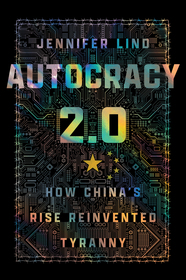
-
10% KEDVEZMÉNY?
- A kedvezmény csak az 'Értesítés a kedvenc témákról' hírlevelünk címzettjeinek rendeléseire érvényes.
- Kiadói listaár GBP 23.99
-
11 461 Ft (10 915 Ft + 5% áfa)
Az ár azért becsült, mert a rendelés pillanatában nem lehet pontosan tudni, hogy a beérkezéskor milyen lesz a forint árfolyama az adott termék eredeti devizájához képest. Ha a forint romlana, kissé többet, ha javulna, kissé kevesebbet kell majd fizetnie.
- Kedvezmény(ek) 10% (cc. 1 146 Ft off)
- Kedvezményes ár 10 315 Ft (9 824 Ft + 5% áfa)
Iratkozzon fel most és részesüljön kedvezőbb árainkból!
Feliratkozom
11 461 Ft

Beszerezhetőség
Még nem jelent meg, de rendelhető. A megjelenéstől számított néhány héten belül megérkezik.
Why don't you give exact delivery time?
A beszerzés időigényét az eddigi tapasztalatokra alapozva adjuk meg. Azért becsült, mert a terméket külföldről hozzuk be, így a kiadó kiszolgálásának pillanatnyi gyorsaságától is függ. A megadottnál gyorsabb és lassabb szállítás is elképzelhető, de mindent megteszünk, hogy Ön a lehető leghamarabb jusson hozzá a termékhez.
A termék adatai:
- Kiadó Cornell University Press
- Megjelenés dátuma 2025. november 15.
- ISBN 9781501784149
- Kötéstípus Keménykötés
- Terjedelem244 oldal
- Méret 229x152x21 mm
- Súly 907 g
- Nyelv angol
- Illusztrációk 3 graphs - 3 Graphs Graphs 700
Kategóriák
Hosszú leírás:
"
In Autocracy 2.0, Jennifer Lind reveals how China's leaders defied expectations and propelled the country to innovation-superpower status - and what that means for the balance of power and global struggle between democracy and authoritarianism.
In 2008, the world watched in awe as 2,008 men pounded Fou drums in unison at the Beijing Olympics opening ceremony - a spectacle that heralded China's arrival as a global powerhouse. Yet even as China's economy skyrocketed, skeptics scoffed at its ability to lead in tech, arguing that its authoritarian institutions smother true innovation. Lind dismantles this assumption, showing that China has not just kept pace; it has, in fact, surged ahead.
Coupling hard data with razor-sharp analysis, Lind shows that China's ascent was fueled by what she calls ""smart authoritarianism"": a model of governance in which autocratic leaders temper tight political control with inclusive economic measures. By balancing proinnovation policies with tools of repression, China's leaders have obtained political control and economic growth. These smart authoritarians, Lind observes, are not the brass-knuckled dictators of the past - they are their polished Savile Row–clad progeny, and they are found not only in China but also in authoritarian regimes worldwide.
Compelling and incisive, Autocracy 2.0 is a must-read for anyone seeking to understand China's meteoric rise and how today's autocrats are reshaping the technological frontier, governance, and the global balance of power.
" Több

Twice Burned: A Fire Scientist’s Adventures in Overturning and Preventing Wrongful Arson Convictions










